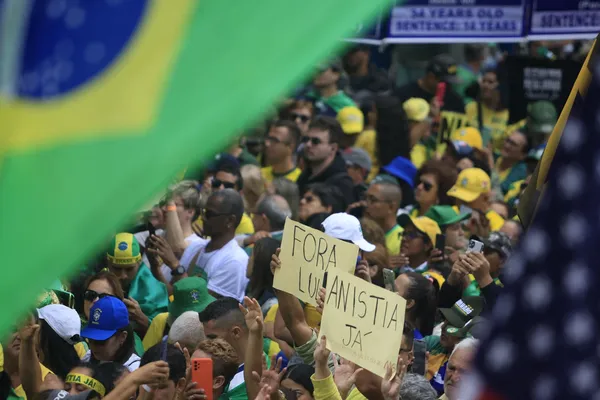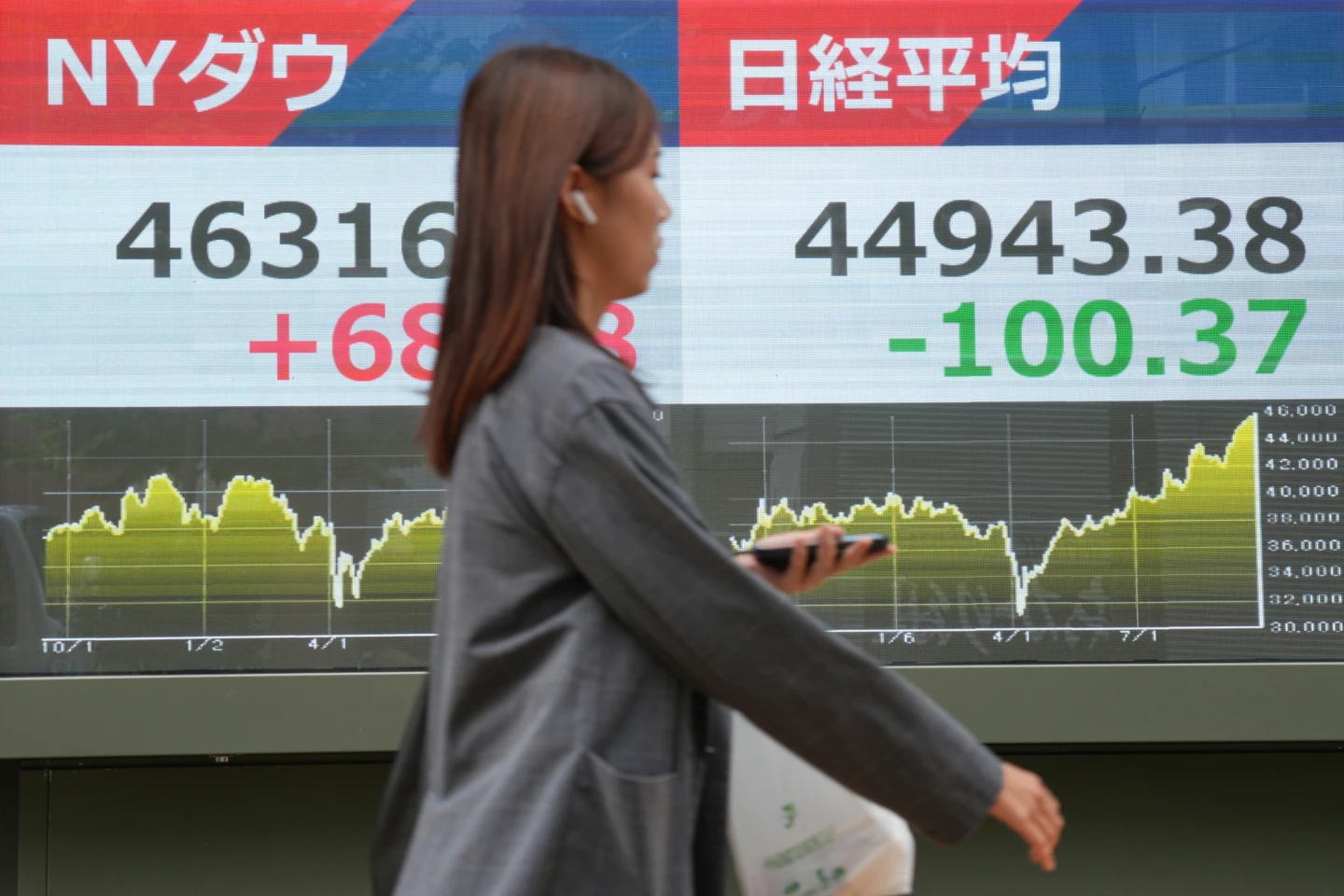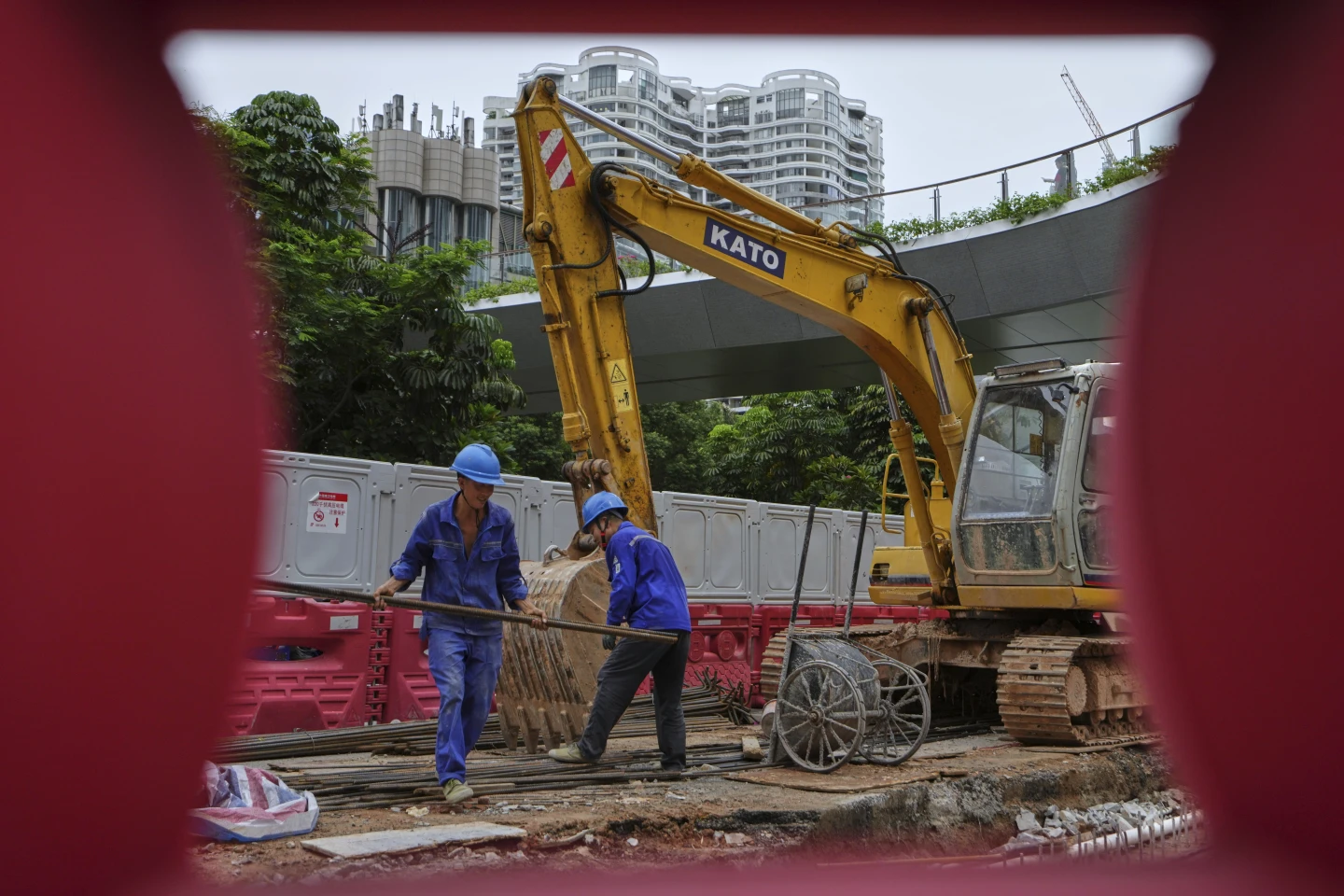Trump’s 50% Tariff on Brazil Sends Global Shockwaves: ‘Nothing Is Off Limits’
Former President Donald Trump’s proposal for a 50% tariff on Brazilian imports has stunned global markets and reignited fears of a return to protectionist trade wars. Analysts say the move signals an aggressive economic nationalism that could redefine U.S. trade priorities if Trump returns to office.
In a move that has rattled international markets and raised alarms among trade partners, former U. S. President Donald Trump announced he would impose a 50% tariff on all imports from Brazil if re-elected in 2024 — a dramatic escalation that experts say signals a broader return to economic nationalism and hardline trade policies.
The announcement, made during a campaign rally in Ohio and reinforced in multiple posts on his Truth Social platform, was framed as a direct retaliation against what Trump called Brazil’s 'unfair trade practices' and 'currency manipulation. ' However, economists, diplomats, and global businesses are interpreting it as a bold warning that no country is off limits in Trump’s vision of U. S.
trade dominance. ### A Sudden Target: Why Brazil?Brazil, Latin America’s largest economy and a top trading partner of the United States, has historically enjoyed stable if occasionally strained relations with Washington. Under Trump’s first term, relations warmed due to ideological alignment with former Brazilian President Jair Bolsonaro.
But in recent years, that alliance has cooled, particularly with Brazil’s left-leaning President Luiz Inácio Lula da Silva back in office. Trump accused Brazil of: - Flooding U. S.
markets with cheap agricultural products that undercut American farmers. - Manipulating its currency, the real, to gain trade advantages. - Failing to protect U.
S. companies' intellectual property. “Brazil is cheating us — on soybeans, steel, even beef,” Trump told the crowd in Ohio.
“We will not let countries take advantage of American workers anymore. We are putting America First, again. ”### Global Reactions and Economic FalloutTrump’s announcement triggered immediate reactions: - Brazil’s stock market dropped 3.
8% in a single trading session. - The Brazilian real weakened against the U. S.
dollar amid investor uncertainty. - Several U. S.
companies with Latin American operations, including agribusiness giants like Cargill and ADM, expressed concern over the ripple effects. Brazil’s Ministry of Foreign Affairs issued a stern statement warning that retaliatory tariffs could be considered if the U. S.
went forward. “Brazil will defend its trade interests with all necessary diplomatic and legal measures,” the statement read. ### The 50% Shock FactorA 50% across-the-board tariff is virtually unprecedented in modern U.
S. trade history. While Trump previously imposed tariffs on Chinese goods during his first term — up to 25% — this new proposal doubles down on protectionist policy.
Trade experts warn: - The move could violate WTO rules, leading to prolonged legal disputes. - It could damage U. S.
agricultural exports, which depend on reciprocal agreements. - It may further isolate the U. S.
from key alliances in the global south. “This isn’t just about Brazil — it’s a signal to the world,” said Maria Elena Vargas, a senior fellow at the Council on Foreign Relations. “Trump is saying that no country, ally or not, is immune from his trade hammer.
Everything is negotiable — or punishable. ”### Ripple Effects Across Latin AmericaOther Latin American nations — including Mexico, Argentina, and Chile — are now bracing for potential fallout. Trump’s unpredictability during his presidency led to volatile trade conditions, and businesses across the region fear a second term would bring renewed instability.
“Investment decisions are being put on hold,” said an executive at a Sao Paulo-based logistics firm. “If Trump can slap 50% on Brazil, who’s to say Colombia or Peru won’t be next?”### U. S.
Farmers and Manufacturers ReactIronically, some of Trump’s core constituents — American farmers and manufacturers — may be hurt by the policy. Brazil is both a competitor and supplier in key commodities like: - Soybeans - Corn - Iron ore and steelIf Brazil retaliates, U. S.
exports could face tariffs or import bans, further hurting sectors already under pressure from global price shifts and climate volatility. “I voted for Trump and I respect his tough stance,” said Brian Keller, a soybean farmer in Iowa. “But a trade war with Brazil? That’s our biggest competitor.
That could put us out of business. ”### Protectionism Resurging?Trump’s tariff threat is emblematic of a broader shift toward economic protectionism that has been growing across the political spectrum — even beyond the U. S.
From India to Europe, governments are taking a harder stance on trade in the name of self-reliance, security, and domestic industry protection. But Trump’s approach is unique in its unilateralism and aggression. Unlike traditional trade negotiators who use tariffs as leverage in multilateral talks, Trump appears willing to use them as opening salvos — a strategy that upends diplomatic norms and sends markets into chaos.
### Impact on U. S. -Brazil RelationsIf implemented, the policy could severely damage U.
S. -Brazil relations across multiple fronts: - Trade negotiations for bilateral agreements would likely stall. - Defense cooperation, including joint efforts on Amazon security and border control, could be suspended.
- Brazil may seek closer ties with China, its largest trading partner, further eroding U. S. influence in the region.
“This is not just about economics,” said Fernanda Rocha, a Latin America political analyst. “It’s about geopolitics. Trump is pushing Brazil into Beijing’s orbit.
”### Campaign Strategy or Policy Signal?Some analysts believe Trump’s proposal may be more about rhetoric than reality — a campaign strategy aimed at energizing his base of economically anxious voters in Rust Belt states. “Trump understands the symbolic power of tariffs,” said Republican strategist Marc Keaton. “He doesn’t need to implement them immediately.
Just the threat makes him look tough and decisive. ”However, critics warn that such statements — even if not followed through — can spook markets, destabilize trade relationships, and create policy whiplash that undermines long-term planning. ### International Trade Under a Second Trump TermIf Trump wins the presidency again, experts expect: - A return to bilateral, not multilateral, trade deals.
- More tariff threats used as negotiation tools. - Withdrawal or weakening of U. S.
participation in trade groups like the WTO. Such a shift would contrast sharply with the Biden administration’s efforts to rebuild global trade alliances, particularly through the Indo-Pacific Economic Framework (IPEF) and efforts to reform WTO mechanisms. ### Conclusion: A Warning Shot to the Global EconomyTrump’s 50% tariff threat against Brazil isn’t just a bold economic policy — it’s a strategic signal that in a potential second term, the United States could again embrace a go-it-alone trade doctrine.
For allies and competitors alike, it’s a reminder that under Trump, global trade rules are not sacred — and every country could be the next target. Whether this is a campaign tactic or a policy preview, the markets — and the world — are taking note.
24th july 2025



